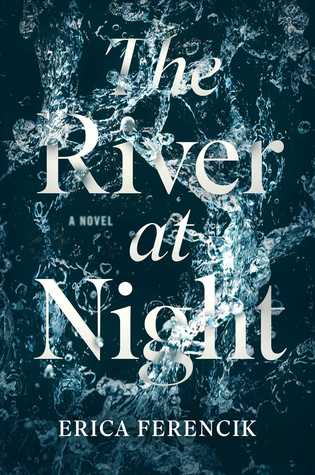Bloomsbury Publishing
2014 (USA)/2017(GB)
Reviewer: Kerry James
Synopsis
Winifred Allen needs a vacation.
Stifled by a soul-crushing job, devastated by the death of her beloved brother, and lonely after the end of a fifteen-year marriage, Wini is feeling vulnerable. So when her three best friends insist on a high-octane getaway for their annual girls’ trip, she signs on, despite her misgivings.
What starts out as an invigorating hiking and rafting excursion in the remote Allagash Wilderness soon becomes an all-too-real nightmare: A freak accident leaves the women stranded, separating them from their raft and everything they need to survive. When night descends, a fire on the mountainside lures them to a ramshackle camp that appears to be their lifeline. But as Wini and her friends grasp the true intent of their supposed saviors, long buried secrets emerge and lifelong allegiances are put to the test. To survive, Wini must reach beyond the world she knows to harness an inner strength she never knew she possessed.
Review By Kerry James
This tension-filled read is a highly-dramatic and beautifully-visualised novel, as one might expect from an experienced novelist who is also a screenwriter. It traces the bonds between four middle-aged female friends as they embark upon a white river-rafting adventure weekend in the rugged Maine woodland urged upon the by the taut and athletic Pia, and what happens to them when it all goes pear-shaped, as we know from the blurb that it will.
The story is told from the point of view of Win, perhaps the most reluctant of the four to undertake the risks of the venture, or to leave the familiar boredom and misery of her lonely inner city apartment, full of memories of her ex-husband, and her dull job. As she is jolted out of her comfort zones by the sheer fierceness and isolation of the wild Maine landscape and the equally forbidding backwoods people the group encounters, we hear Win’s thoughts on the friendship between the four, the passing of years and what it has wrought upon each of them, and the backstory of her own childhood and the love she has for her, now dead, deaf mute brother. These observations serve to slow the rapid action enough for us better to take it in without seeming to slow the novel, which I found a real page-turner to be devoured at one sitting.
Win’s relations with the other women not only round out their characterisations and give each a clear identity but tells us about the links they have with one another. How these unravel under stress and what happens to the small as yet-untried rafting party, led by the beautiful young guide, Rory, is at the centre of this thriller. That it becomes believable, one being drawn into the heightened sense of the river and of the equally threatening woods that enclose it, is a testament to the strong sense of character and the brilliant visual details of the physical surroundings. The author writes tightly and wears lightly but with authority the research she carried out into the Maine wilderness and some of the individualists who live there.
Since Win is telling the story we can be sure she will survive to do so. But she does much more. In daring to challenge herself, Win finds a renewed life for herself. Her fresh observations on modern city life, and those useless things she used to worry about, like hundreds of unanswered emails, assure us that she will never become brain-dead, fearful, full of middle aged concerns, or less than life-embracing again.
This novel is a bracing evocation of the possibilities and limitations of female friendships and the importance of loving and caring for others whatever the difficulties might cost.
